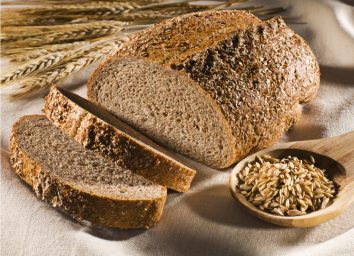What Happens to Your Blood Sugar When You Drink Tea

It's common knowledge that when you're looking for an overall healthy drink, tea is one of the best choices you can make. But while there's a vague awareness that it's a healthy drink, just what exactly does it do? There are many health benefits associated with drinking tea, including lowering your blood sugar.
That doesn't mean that all tea makes a positive impact on blood sugar, though. Ultimately, there's no one answer to how your blood sugar will be impacted when you drink tea, as it depends on how you take it, and which tea you drink. A sweet tea that's loaded with sugar is certain to raise blood sugar, while other types of tea, with no added sugar, can help to lower it.
When it comes to lowering your blood sugar, here's how tea can affect it—and tips to avoid spiking your blood glucose levels with this beverage. Then, for even more healthy tea tips, check out these 17 Amazing Things That Happen To Your Body When You Drink Tea.
Your blood sugar increases when you have sweet tea.

While a delicious southern staple, sweet tea is one of the least healthy ways to take a serving of the aromatic beverage. There's a reason that sweet tea has the name that it does, and that's because it's loaded with sugar.
There's a direct link between the regular consumption of sugary beverages and the likelihood of being diagnosed with type 2 diabetes, as eating or drinking more sugar directly results in increased blood sugar.
Black tea can help your glucose levels.
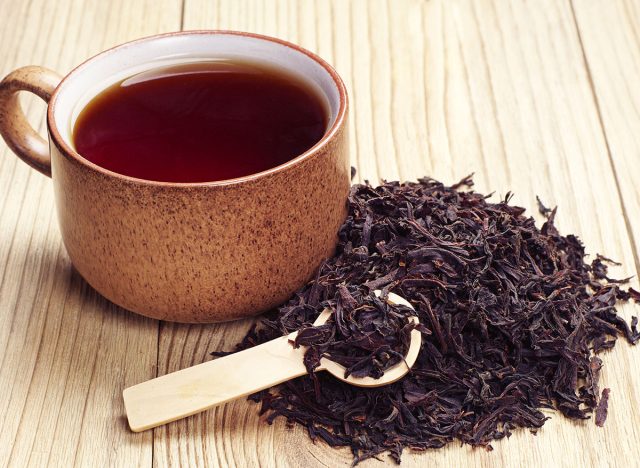
While sweet tea isn't ideal for keeping blood sugar levels low, that doesn't mean you have to rule tea out of your diet—instead, opt for black tea. That shouldn't be too hard to do, as black tea encompasses some of the most popular versions of tea, including English Breakfast and Earl Grey.
A study from Mahidol University in Thailand suggests that black tea is "a promising anti-diabetic agent for glycemic control," meaning that it helps lower blood sugar.
Caffeine can raise blood sugar.
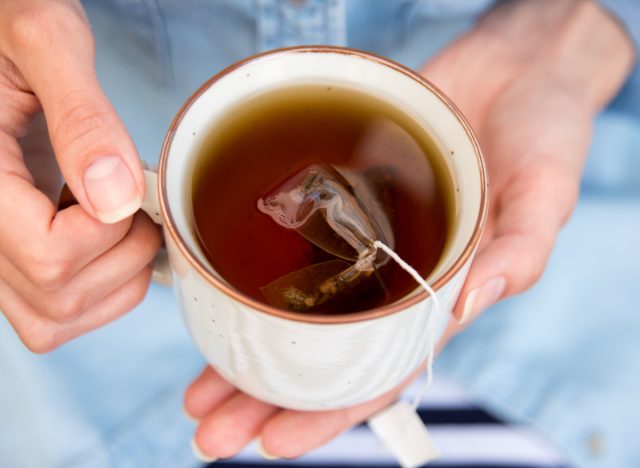
One of the upsides of drinking tea is that it contains caffeine, meaning that a cup of tea in the morning can get you pepped up and energized for the day, but according to registered dietitian Justine Chan, RD, caffeine can have negative side effects on your blood sugar levels as well.
"Teas, unless herbal or decaffeinated, contain caffeine," Chan says. "Caffeine in and of itself can raise your blood sugar because of its stimulating effect."
Additionally, a study from Central Michigan University found that caffeine intake not only raises blood sugar levels, but also increases the amount of time that blood sugar is increased.
Sour tea is good for blood sugar.
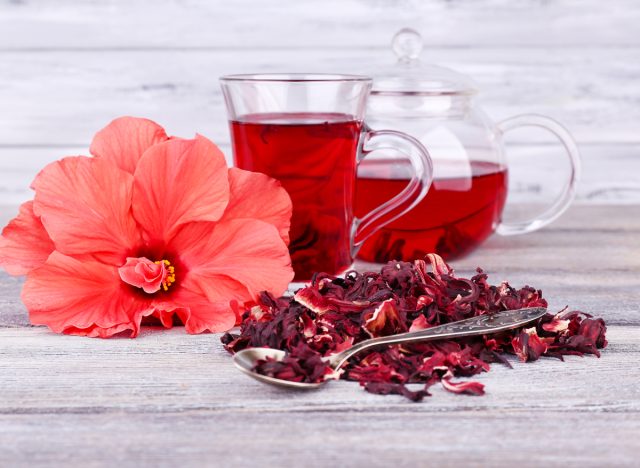
Sweet and sour are opposite flavor profiles, and in the case of blood sugar levels, these teas have opposite effects in the body. While sweet tea typically raises blood sugar, sour teas—including hibiscus tea, which is made from the hibiscus sabdariffa plant—has the opposite effect in that it's been shown to have the ability to help lower blood sugar.
Not only is hibiscus tea beneficial for lowering blood sugar, but a study from the University of Arizona also shows that daily consumption of hibiscus tea has also been linked to lowering blood pressure, as a majority of people with type 2 diabetes also have high blood pressure.
Green tea contains EGCG.
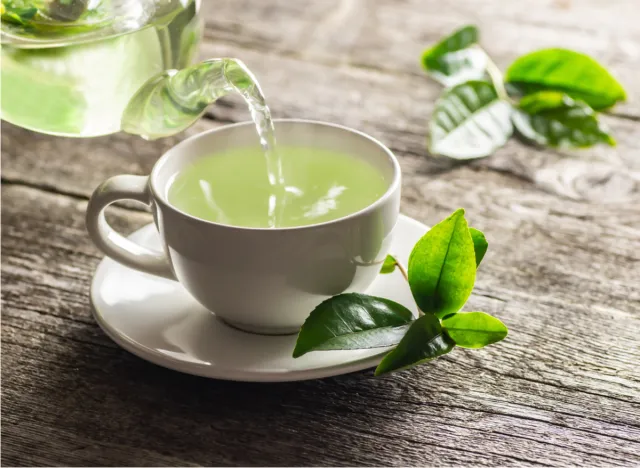
If you've heard that green tea is healthy for you, you've heard correctly. The brewed beverage has been linked to helping cure headaches, promote weight loss, and improve mental alertness, but it is also beneficial for anyone trying to lower their blood sugar as well.
"Green tea has beneficial polyphenol compounds, such as EGCG (epigallocatechin gallate), which has been shown to benefit blood sugar regulation," says Sara Chatfield, RD at HealthCanal.
If you only have packets of black tea at home, that's no problem, as Chatfield says the two varieties contain many of the same beneficial compounds, and the theaflavins found in black tea also help to lower blood sugar.
Tea helps you avoid dehydration.

Sure, drinking tea is associated with a lot of health benefits, but the most obvious is that the beverage helps to avoid dehydration. While dehydration can cause fatigue and confusion, it can also result in increased blood sugar.
A French study found that dehydration can result in increased blood sugar levels, which found that participants who drank less water resulted in having a higher risk of hyperglycemia (or high blood sugar), and drinking it could help delay or prevent the onset of it and, in return, diabetes.


